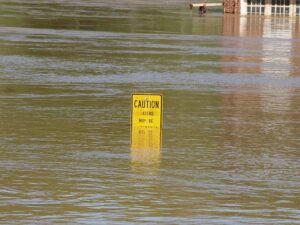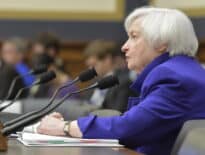With climate change projected to affect both the U.S. and global economies, the Federal Reserve Board will establish a new committee to look at the impact climate change could have on the broader financial system.
Called the Financial Stability Climate Committee (FSCC), the new group will identify, assess and address climate-related risks to financial stability, Fed Governor Lael Brainard said on Tuesday in a virtual speech at the Ceres 2021 Conference. Ceres is a Boston-based nonprofit organization that examines sustainability challenges, including in the financial sector.
The new committee will provide another piece of the framework being developed by the Fed to consider climate change. Brainard noted that financial and economic effects would depend on “the severity of the physical effects of climate change and the nature and speed of the transition to a sustainable economy.”
“Financial market participants that do not put in place frameworks to assess and address climate-related risks could face significant losses on climate-sensitive assets caused by environmental shifts, by a disorderly transition, or both,” Brainard said, according to the text of her speech provided by the Fed. “Conversely, robust risk management; scenario analysis; consistent, comparable disclosures; and forward plans can help ensure the financial system is resilient to climate-related risks and well positioned to support the transition to a sustainable economy.”
Brainard said the framework for addressing the effects of climate change should incorporate both micro- and macroprudential considerations, looking at the impact on both financial institutions and the broader financial system.
The Fed has already started the process for taking a microprudential approach to climate change by creating the Supervision Climate Commission in January. The SCC was established to strengthen the Fed’s capacity to identify and assess financial risks from climate change, as well as to develop an appropriate program to ensure the financial institution’s resilience to those risks, including credit, market, operational, legal and reputational risks that could affect the safety and soundness of individual firms.
The new FSCC will take a macroprudential approach to climate change. Brainard said the FSCC will work across the entire Federal Reserve system at developing and implementing a program to assess and address climate-related risks to financial stability.
“The broad goals of the FSCC are to promote the resilience of the financial system to climate-related financial risks, to ensure coordination with the Financial Stability Oversight Council (FSOC) and its member agencies, and to increase the Federal Reserve’s international engagement and influence on this issue,” Brainard said. “The FSCC will work in close coordination with the SCC – as well as with our community development, payments, international coordination, and economic research and data areas – to build a coordinated approach to integrating climate-related risks where they affect our responsibilities.”
Looking at both micro- and macroprudential considerations will also let the Fed identify ways that the goals of each approach might not align, Brainard said. She gave an example of how tools to mitigate climate-related risks, such as insurance or financial derivatives, could shift risk away from a particular financial institution without reducing or eliminating risk from the system as a whole.
“In developing a framework to address climate-related financial risks, we need to be mindful of this cascade of effects and the implications across the Federal Reserve’s range of responsibilities,” Brainard said.
The Fed’s efforts to establish a framework for addressing climate change have met some resistance in Congress. In a letter last week to Federal Reserve Chair Jerome Powell, the Republican members of the U.S. Senate Banking Committee questioned the “the purpose and efficacy of climate-related banking regulation and scenario analysis, especially because the Federal Reserve lacks jurisdiction over and expertise in environmental matters.”









